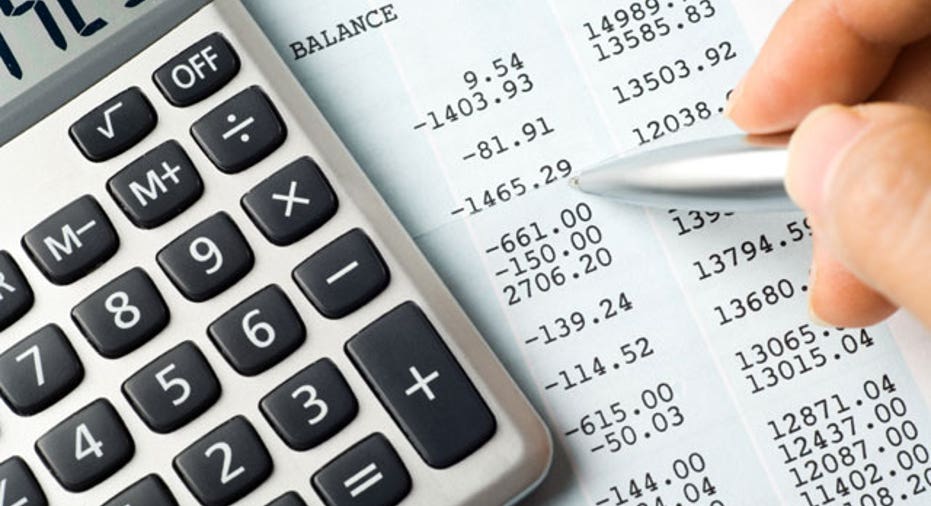Five Financial Band-Aids That can Make the Bleeding Worse

You've resolved to improve your financial situation this year. Maybe you want to pay off a loan, knock off some credit card debt or boost your credit score. Way to go!
As you set out to accomplish your goal, beware and avoid options that seem like quick fixes. Often, they only help at the surface temporarily, perhaps abating a symptom like not having enough money to pay an upcoming bill. They don't, however, solve the problem long term or address its root, such as the lack of a budget, financial disorganization or emotional spending. These quick-fix, Band-Aid approaches often come at a high cost and, therefore, could worsen your money troubles -- the last scenario you want to find yourself in.
"People need to recognize there are no real quick fixes," says Ornella Grosz, author of "Moneylicious: A Financial Clue for Generation Y," a personal finance guide for young adults. "Once you get yourself in a bad financial situation, it takes determination, discipline and hard work to get yourself out."
To help you maintain and improve your financial footing, steer clear of these five financial Band-Aids and consider the suggested healthy alternatives instead.
1. Closing old credit card accounts
It's tempting to close credit card accounts if you've finally paid them off after a long struggle. But closing credit card accounts reduces your available credit and increases your credit utilization, which then drops your credit score.
Healthy alternative: Keep those accounts open, but cut up and don't use the credit cards. Only charge recurring expenses and use cash for impulse purchases. Because people feel the impact when they spend cash, they tend to treat it more conservatively than credit, Grosz says.
2. Getting a payday or title loan
Beware of short-term loans, which often have interest rates in the triple digits. According to the Consumer Federation of America, you'll pay an average 300% APR on a one-month title loan (where you give the lender the title of your car to secure the loan), and an astonishing 390 to 780% APR for a 2-week payday loan. Because of the terms, you may struggle to repay them, burying yourself further in debt and perhaps even losing your vehicle.
Many payday and title lenders are "predatory," Grosz says, adding that these types of short-term loans "can lead to a vicious cycle."
Healthy alternative: Pick up a side or second job.
"You have to have that discipline and mindset to stay away from borrowed money, which can work against you rather than for you," Grosz says.
3. Taking out a cash advance
Whether you're taking out a cash advance at the ATM or cashing a credit card convenience check you received in the mail, keep in mind that these, too, are loans, on which you'll pay interest rates typically higher than the purchase APR on your credit cards.
Healthy alternative: Borrow money from friends or family. Create and sign a loan agreement. And pay them back.
4. Applying for a new line of credit
If, currently, you're making only the minimum payments on your existing credit cards, then you shouldn't go this route, as putting charges on the new card may only increase your debt over time.
Healthy alternative: Negotiate a forbearance program with your credit card companies. Depending on your financial circumstances, they might reduce your interest rate or your minimum monthly payment, eliminate fees or postpone payments for some time.
"Be adamant about it, and don't give up," Grosz advises. "It's up to you."
5. Filing bankruptcy
Bankruptcy is costly and it damages your credit score for up to 10 years, making it a lot more difficult to obtain credit, buy a car or home, rent an apartment and sometimes even land a job.
Healthy alternative: Pursue a debt management plan. Accredited nonprofit organizations specializing in this can help you get your debt restructured and your payments reduced to manageable amounts. Be aware that there will be a fee for this service, however.
More healthy alternatives
Debt snowball. Another alternative to any of the mentioned quick fixes is employing the debt-snowball repayment strategy. While paying the minimum payment on all debts, send in more than the minimum on your smallest balance until it's paid off. Then use that same payment tackle the next smallest debt, and so on.
"The snowball is a great way to put you on the right financial path," Grosz says.
Find areas to cut costs. Write down the money you spend and why, until you notice patterns. You might discover you spend more than you thought on gasoline or dining out. Devise and follow a plan to spend less. For example, you might pledge to carpool for a month or skip restaurants for three months.
"Sometimes it just boils down to paying attention to how and where we're spending our money," Grosz says. There's no shortage of ways to use credit cards to build credit without putting your financial health at greater risk.
The original article can be found at CardRatings.com:5 financial Band-Aids that can make the bleeding worse



















